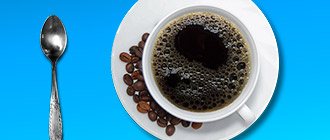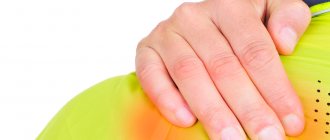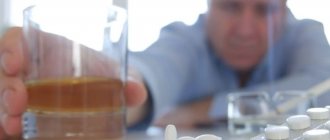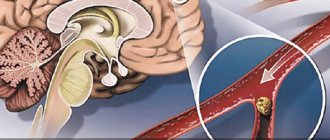Caffeine tablets: what is it used for and how is it useful?
Caffeine is a stimulant that increases the activity of the CNS (central nervous system). It is found in drinks such as tea, coffee and energy drinks, and is also produced in tablets and injection solutions.
Caffeine increases concentration and improves mental performance. And research results in 2014 showed that these tablets have a beneficial effect on memory, and people who take them remember various information well.
According to the US National Collegiate Athletic Association, the use of caffeine tablets by athletes promotes high athletic performance. This is because it improves coordination, increases focus and endurance during high-intensity exercise, and makes athletes less susceptible to pain and fatigue. However, you should not drink caffeine before competitions.
An oral caffeine solution is used to treat apnea (cessation of breathing) in premature infants. Apnea in these children occurs because their respiratory center is not fully developed. This treatment is prescribed by a doctor in individual cases.
In addition, caffeine tablets may be prescribed for low blood pressure (hypotension) to increase it. Taking the substance in question can also help combat drowsiness.
Caffeine is included in some analgesics and antipyretics, such as:
- Citramon;
- Askofen;
- Solpadeine Active;
- Cofan.
In these agents, it acts as an adjuvant (amplifier) of the therapeutic action of the above pharmacological groups.
In pharmacies you can find a drug such as Caffeine Sodium Benzoate, the main active ingredient of which is caffeine. It is used for acute heart failure, cerebral vasospasm, asphyxia (suffocation due to lack of oxygen) and asthenic syndrome (increased fatigue). And in pediatrics, this drug is prescribed for enuresis (involuntary urination).
Before purchasing medications with caffeine, consult your healthcare professional.
What dose is too much?
There is no exact answer to this question - a safe dose of caffeine depends on your health condition. Some people drink strong coffee all day long without any harmful consequences, while for others, just a single cup causes their blood pressure to rise, their sleep to be disturbed, headaches, and nerves. The nervousness caused by caffeine can be alleviated by the amino acid L-theanine, which is found in green tea leaves. Interestingly, similar symptoms are observed in people with caffeine withdrawal. They also yawn, complain of fatigue, runny nose, muscle stiffness, and find it difficult to concentrate. Unfortunately, caffeine cannot be considered a completely safe product.
Caffeine tablets: dosage of the drug and why it is better than caffeine in drinks
Caffeine tablets may contain natural or synthetic forms of the substance.
There are two types of caffeine dosage in tablets: 100 mg and 200 mg. You can drink no more than 500 mg at a time, as more can lead to side effects.
For example, it should be indicated that the amount of the substance in question in drinks is equal to the following indicators:
- coffee (230 ml) - 80-100 mg;
- tea (230 mg) - 20-50 mg;
- energy drink (230 mg) - 40-250 mg.
To improve mental performance and increase concentration, it is more effective to drink caffeine tablets than to drink drinks containing it. This is due to higher bioavailability and precisely defined dosage of drugs. It is difficult to calculate the exact amount of caffeine, for example, in a cup of coffee, and it is also quite difficult to say how fermented a certain coffee is.
If you don’t yet know where to buy caffeine tablets, we hasten to inform you that such tablets are sold in pharmacies. But before purchasing them, you should consult your doctor, as you may have contraindications for use.
How much do you need to drink to reach your caffeine limit?
To answer this question, you need to know how much caffeine is in each cup/can/bottle you drink. This information is contained in Figure 1, but for those who find it difficult to concentrate without caffeine, as well as for adherents of a mono-diet (like starting the day with coffee from McDonald's, they won't take anything else caffeinated in their mouth) there is also Figure 2.
Rice. 2 How many and what drinks can you drink so as not to exceed the daily caffeine limit of 400 mg.
How to take caffeine tablets?
Children under 12 years of age are prohibited from drinking caffeine in tablet form.
Children over 12 years of age and adults are recommended to take caffeine tablets no more than 3 times a day.
In one go you can drink:
- child (12-18 years old) - 25-100 mg;
- for an adult (over 18 years old) - 100-200 mg.
The maximum single dose for an adult is 500 mg.
The maximum daily dose for an adult is 1000 mg.
If you miss a dose, take it as soon as possible. But if it is already time for the next dose, then you should not make up for the missed one. It is prohibited to take a double dose!
For better absorption of caffeine tablets, they should be taken after meals.
Pregnant and lactating women - handle with caution
The European Food Safety Authority recommends that lactating and pregnant women, as well as those planning a pregnancy, limit their daily caffeine intake to 200 mg. Some experts allow 300 mg/day, however, according to some reports, caffeine causes nausea in pregnant women and, much worse, the risk of miscarriage.
There are very few clinical studies on the effects of caffeine on pregnant and lactating women, and in such a situation it is wiser to limit the consumption of the alkaloid. In pregnant women, the time required to remove caffeine from the body increases by more than three times, so caffeine can accumulate: what you drink in the evening is added to what was stored in the morning, and the total dose of the substance circulating in the blood turns out to be higher than calculated.
So, pregnant and lactating women should not exceed the daily dose of 200 mg, although they are allowed 300 mg.
Caffeine overdose
During treatment with these drugs, you should not drink drinks containing caffeine, as this leads to an increase in its level in the blood and an overdose may occur, which may be accompanied by the following effects:
- excitation;
- anxiety;
- confusion;
- frequent urination;
- irregular or fast heartbeat;
- muscle twitching;
- tinnitus;
- convulsions;
- abdominal pain;
- sleep problems.
- diarrhea;
- black tarry stools;
- heartburn;
- dizziness, fainting;
- vomit;
- increased blood pressure;
- strong thirst.
The best thing you can do
All of the above recommendations are based on the long-term effects of regular caffeine consumption. Higher doses, up to 800 mg, can be taken on special occasions if health permits. So, in one study, different doses of caffeine were taken before training. The alkaloid increased the content of testosterone in the blood, that is, it showed itself to be an anabolic steroid. However, the 800 mg dose also increases the concentration of cortisol, which exhibits a catabolic effect.
The more often you ingest large portions of caffeine, the more likely you are to experience its negative effects. In addition, with frequent use, some of the benefits of caffeine are lost and a kind of tolerance is developed. To avoid this, caffeine is taken periodically. This makes sense if caffeine is drunk for the release of adrenaline, and for the synthesis of dopamine, regular breaks in drinking coffee, tea and energy drinks are necessary. But if caffeine is relied upon as a means of reducing the risk of developing Parkinson's disease or type 2 diabetes, it must be consumed regularly, and it is better not to swallow powders, but to drink tea and coffee. Caffeine lowers blood glucose levels, but this effect is lessened when taken in powder form.
High doses of caffeine improve physical performance, but regularly exceeding the upper limit of consumption is harmful to health. Moreover, both regular and occasional use of caffeine have their benefits. It all depends on the effect you want to achieve.
Source:
Side effects of caffeine
- problems sleeping (insomnia)
- nervousness or anxiety
- irritability
- nausea
- headache
If you experience the following side effects, you should consult a doctor the sooner the better:
- severe allergic reactions (difficulty breathing, chest tightness, swelling of the larynx, face, lips, tongue, rash, hives, or itching)
- diarrhea
- vomit
- cardiopalmus
- high blood pressure
- chest pain
Important information about the use of caffeine
- Caffeine may cause dizziness. Do not drive, operate machinery, or do any activity that requires increased concentration until you are sure of the effect of caffeine on your body.
- Avoid many foods and drinks that contain caffeine, such as coffee, tea, cocoa, cola drinks, energy drinks, and chocolate if you are taking higher doses of caffeine medications. This also includes any herbal, diet or prescription medications that contain caffeine.
- Caffeine should not be used as a substitute for sleep.
- Drinking caffeine can change your blood sugar levels. Patients with diabetes should regulate their blood sugar levels more carefully when taking caffeine.
- Caffeine is not recommended for children under 12 years of age. Safety and effectiveness in this age group have not been established.
- If you are pregnant, discuss with your doctor the safety precautions for using this stimulant.
- Caffeine is excreted in breast milk. Therefore, you should consult your doctor about the risks of consuming caffeine while breastfeeding, as this substance can cause various side effects in the baby.
How long does caffeine tablets last? It takes about 60 minutes to be completely absorbed into the bloodstream and achieve maximum effect. Caffeine lasts from 3 to 6 hours, after this time its effect on the body decreases. This drug is excreted within 5-6 hours, but in individual cases the excretion time can be 10 hours.
Now you know how to use caffeine tablets, so try to adhere to these recommendations and consult a doctor before purchasing the drug in question.
Can you drink caffeine with alcohol? Find out from our popular article about the interaction of caffeine and alcohol in energy drinks and the dangers of energy drinks .
Is caffeinated coffee really harmful or is it all an exaggeration? Read the debunking of 5 popular myths about coffee that everyone believes .
apteka24.ua is the first online pharmacy you can trust.
Children and adolescents - it is better to abstain
There is clearly insufficient data on safe doses of caffeine for children and adolescents. According to European experts, 3 mg/kg of body weight per day will not harm young consumers. In Canada, a dose of no more than 2.5 mg/kg/day is considered safe. In accordance with these standards, children, depending on age, are allowed to:
- 4-6 years - 45 mg/day
- 7-9 years - 62.5 mg/day
- 10-12 years - 85 mg/day.
Not everyone agrees with this opinion. Thus, in 2013, a group of distinguished American doctors sent a letter to the US Food and Drug Administration calling for a ban on the sale of caffeinated drinks in schools. Scientists note that energy drinks are reliably correlated with adverse health effects in children, adolescents and young adults.
So the safe level of caffeine for children and adolescents has been determined, but some medical organizations are calling for more thorough research into this problem, and until data is collected, the less caffeine a child consumes, the better.











